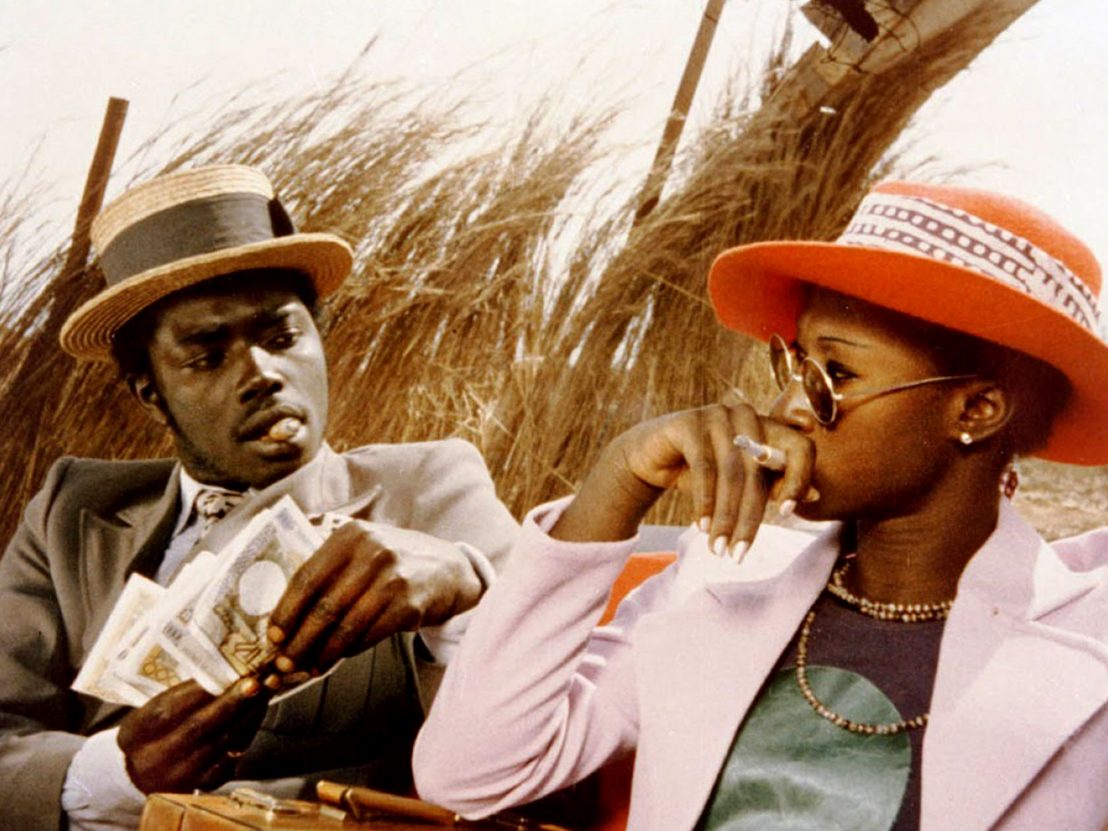
“Another place in the universe, up under different stars: that’s where the ultimate destiny would come in.” So declared cosmic prophet and master of funk Sun Ra in the film Space Is the Place, giving a succinct summation of the Afrofuturist corpus and its aspirational goals. An oppressed Black population can find freedom or hope only by leaving our compromised Earth and its dimension of inequality, seeking alternate societies in the deepest reaches of the galaxy or parallel universes, with all preconceived notions about Blackness upended by the quality of the unfamiliar.
Sun Ra’s head-melter isn’t part of it, but a new season at the BFI Southbank pays homage to the narrative tradition he helped solidify with a dizzying lineup of far-out Black cinema addressing issues that still persist here on our spinning blue marble. In the Black Fantastic will run from 13 to 31 July, showcasing a lineup of Afrofuturism, sci-fi, and films otherwise rooted in the supernatural as they search for answers to questions grounded in the everyday.
The BFI series is included under the larger umbrella of an exhibition by the same name on display at the Hayward Gallery, having opened on 29 June and sticking around until 18 September. Curated by Ekow Eshun, the show features the work of eleven artists from the African diaspora exploring themes common to the cinema accompanying it: identity, potential, technology, the fusion of tradition and modernisation.
The BFI’s season gathers a cornucopia of subversive brilliance, in some cases from films not often shown on the repertory circuit. Kuso, Steve “Flying Lotus” Ellison’s magnificently disgusting vision of the apocalypse, hasn’t often played in brick-and-mortar cinemas since its straight-to-streaming release. Same goes for Mati Diop‘s eerie and haunting Atlantics, which garnered a wave of glowing reviews prior to a quiet drop on Netflix.
They’re joined by a handful of more critically feted canon picks, including Souleyman Cissé’s Malian fable Yeelen and the groundbreaking Senegalese classic Touki Bouki (which Eshun himself will be on hand to introduce). From America, kindred-minded indies like Daughters of the Dust and Eve’s Bayou continue and expand the conversation started overseas. A program within this series titled The Black Atlantic also compiles short films as variations on the theme of forced migration and the slave trade, with a Q&A to follow the screening on the 18th.
One could argue that projects like In the Black Fantastic are the reason repertory cinema programming exists, not just bringing attention to deserving work but actively broadening the popular understanding of who makes great cinema. The day may soon come when young students of the cinema masters will learn the name Djibril Diop Mambéty along with Kurosawa, Bergman, and Godard, the essential artist’s legacy seen and appreciated in its full glory.
In the Black Fantastic runs at the BFI and across Southbank venues until September 18.
Little White Lies is committed to championing great movies and the talented people who make them.
Published 11 Jul 2022

Saul Williams and Anisia Uzeyman ponder post-colonisation in this percussive, transcendental Afrofuturist musical.

By Helen Reid
Four titles playing at Film Africa in London showcase African filmmakers finally telling their own stories.

This year’s Film Africa event showed that African people are still not free to define their own identity abroad.